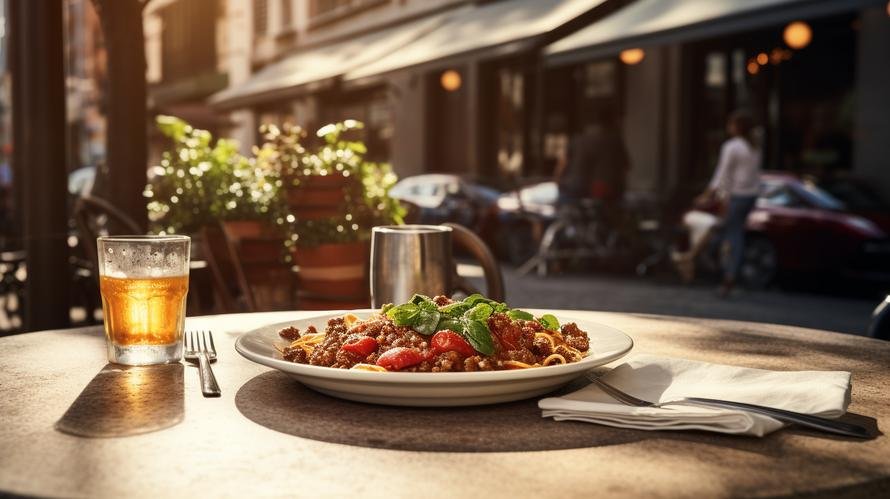Renowned for its muscle mass and droopy, adorable, expressive face, Bolognese dogs, also known as the Bichon Bolognese, have become a popular breed for households across the globe. These dogs with Italian origins are members of the Bichon group and have won countless hearts with their amiable temperament and fluffy, snow-white fur. But those unfamiliar with this breed may have one prominent question in mind – could these seemingly benign dogs pose a danger?
Let’s take a deep dive into this topic as we unravel the truth behind this wonder breed. Whether you’re an experienced dog owner or someone considering welcoming a furry friend into your home, the following details will shine a light on any misconceptions you might hold about Bolognese dogs.
Before we delve into whether Bolognese dogs can be dangerous, it’s vital to understand their origin and personality. The breed traces its roots back to the city of Bologna, Italy, which explains its name. Often considered part of the elite dog group owned by Italian nobility, the Bolognese holds a prestigious history dating back to the Renaissance period! These adorable pooches were the best companions of artists, writers, and nobles, even acting as muses for famous painters like Titian and Goya.
Now let’s talk about their personality, which is as sweet as gelato on a warm Italian day. Bolognese dogs are known for their loyalty and affectionate nature. They are intelligent, making them quick learners and great partners for individuals or families. They are indeed sociable pets and thoroughly enjoy being around their owners. These fluffy balls of fur are docile, making them perfect companions, particularly for those residing in apartments or smaller living spaces.
So, one might wonder, where does the question of them being ‘dangerous’ come into play? This breed is generally not known for aggression. However, like all animals with their own minds and temperaments—Bolognese dogs are no exceptions. But it is crucial to bear in mind that the term ‘dangerous’ can be misconstrued. Certain behaviors from dogs might appear ‘dangerous’ when, in reality, they might just be a reaction to certain circumstances or the manifestation of an underlying issue.
Let’s unpack this further. This breed is known to become anxious when alone for extended periods. Such anxiety can lead the Bolognese to exhibit signs of restlessness or even show behavioral issues that may perceive as threatening, like destructive chewing or excessive bark. Contrary to expressing inherently aggressive behavior, these are coping mechanisms.
Another aspect that can make a dog dangerous is improper training. Lack of appropriate training or socialization can result in developing bad habits for both small and big breeds. If a Bolognese dog hasn’t been trained to act around strangers or other animals, it may react unpredictably, which might be interpreted as danger.
This brings us to a crucial part – approaching any misunderstandings or perceived danger with a solution. A well-trained, well-socialized Bolognese dog will not emerge as a ‘dangerous dog’ but become a well-loved and appreciated family member. Here’s how:
1. Training Early: Begin training your Bolognese early. Ensure they learn basic commands like ‘sit’, ‘stop’, ‘come’, and ‘stay’. A well-trained Bolognese is less likely to develop behavioral problems later on.
2. Adequate Exercise: Regular walks and play will keep your Bolognese healthy and mentally stimulated. This reduces chances of destructive behavior brought on by boredom or anxiety.
3. Socialization: Expose your Bolognese to different situations, people, and animals in a controlled manner from a young age. This will help them navigate unfamiliar scenarios without unleashing a fear-aggression response.
4. Companionship: Bolognese dogs are companion animals who thrive on social interaction. Leaving them alone for long might trigger anxiety-related issues, making routine schedules important.
5. Routine Check-ups: Regular vet check-ups will ensure your Bolognese is healthy and not acting out due to discomfort or pain.
In conclusion, the Bolognese dog, much like any breed, only becomes dangerous when not given the right care, training, and socialization. With the right attention to their needs, barking, chewing, or any “dangerous” behavior can be regulated. Bolognese dogs are a wonderful breed known for their affectionate and loyal nature, and with understanding and patience, they can become a truly wonderful addition to any family.



